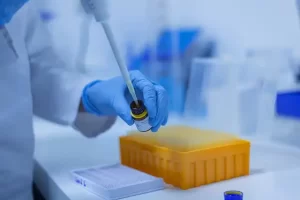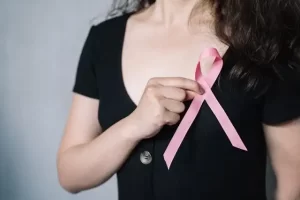Immune cells use hunger hormones to help heal skin infections and wounds
- Early Biomarker for Multiple Sclerosis Development Identified Years in Advance
- Aspirin Found Ineffective in Improving Recurrence Risk or Survival Rate of Breast Cancer Patients
- Child Products from Aliexpess and Temu Contain Carcinogens 3026x Over Limit
- Daiichi Sankyo/AstraZeneca’s Enhertu Shows Positive Results in Phase III DESTINY-Breast06 Clinical Trial
- Mn007 Molecules Offer Potential for Combating Streptococcus pyogenes Infection
- Popular Indian Spices Banned in Hong Kong Over Carcinogen Concerns
Immune cells use hunger hormones to help heal skin infections and wounds
- AstraZeneca Admits for the First Time that its COVID Vaccine Has Blood Clot Side Effects
- Was COVID virus leaked from the Chinese WIV lab?
- HIV Cure Research: New Study Links Viral DNA Levels to Spontaneous Control
- FDA has mandated a top-level black box warning for all marketed CAR-T therapies
- Can people with high blood pressure eat peanuts?
- What is the difference between dopamine and dobutamine?
- How long can the patient live after heart stent surgery?
Immune cells use hunger hormones to help heal skin infections and wounds.
Researchers at the University of Calgary in Canada have discovered a promising new treatment for bacterial skin infections.
In a recent paper published in the journal Nature, the researchers describe their new insights that could lead to new treatments for bacterial infections and skin wounds.

Traditionally, researchers thought that both neutrophils and monocytes were responsible for clearing bacteria from infected sites on the skin.
When these cells work together, they become the immune system’s first line of defense in the body.
However, new research shows that the monocytes themselves are able to promote faster wound healing.
Monocytes aid in healing by regulating leptin levels and blood vessel growth during wound repair. They also produce ghrelin, a hormone that helps wounds heal more efficiently.
Ghrelin is a hormone produced by the stomach when it is hungry; leptin is a hormone produced by fat cells after eating a meal and feeling full.
The balance between these two hormones has long been considered key to metabolism and diet, but its links to immune mechanisms and tissue repair have not been known.

Using intravital microscopy, the researchers were able to visualize the immune response to S. aureus in an animal prototype.
Staphylococcus aureus, a bacterium commonly found on the skin or nose of healthy people, may be a catalyst for various diseases related to skin and tissue infections, such as abscesses or boils.
In some cases, the bacteria can cause serious infections such as pneumonia and endocarditis.

After a S. aureus infection, the body recruits useful immune cells, neutrophils, and monocytes. Neutrophils clear bacteria, while monocytes help repair tissue.
In the absence of monocytes, leptin increases, causing blood vessels to grow during infection, which can result in delayed healing and scarring.
Instead, monocytes release ghrelin at the site of infection, preventing leptin-driven overgrowth of blood vessels, thereby promoting tissue repair.
The study elevates the role of monocytes in wound repair, challenges the current view that neutrophils and monocytes clear bacteria, and represents a paradigm shift, researchers say The introduction of metabolic hormones (ghrelin and leptin) opened the door.
Immune cells use hunger hormones to help heal skin infections and wounds
(source:internet, reference only)
Disclaimer of medicaltrend.org
Important Note: The information provided is for informational purposes only and should not be considered as medical advice.



